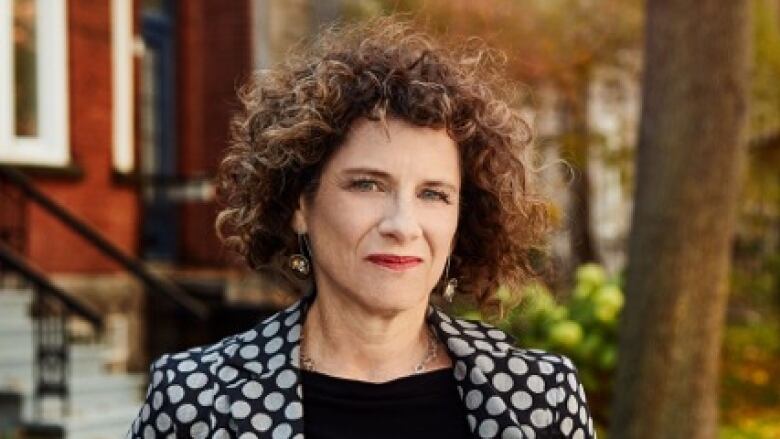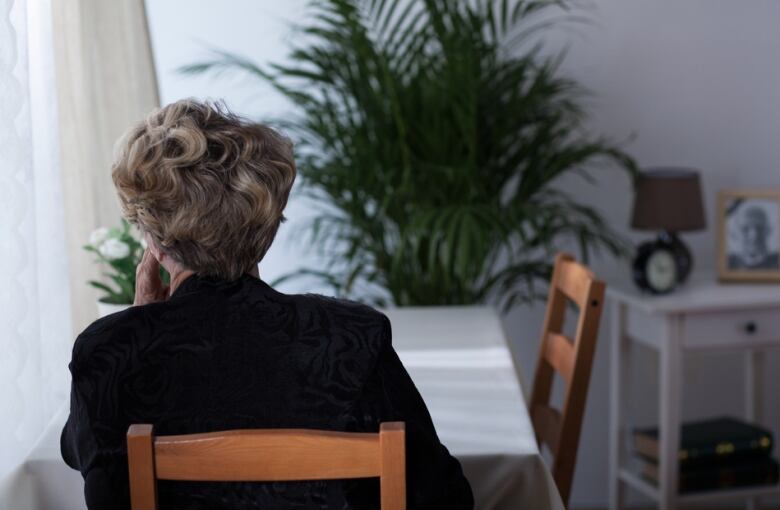More older Canadian women are living alone and they mostly love it
68% of seniors living alone are women, says Statistics Canada

Juanita Johnson still livesin the home she and her late husband built together, but the 79-year-old inSalmon River, N.S., says she's far from lonely.
The volunteer and former municipal councillor spends much of her time visiting with friends she's known for decades, many of whom arealso widowed.
"They all have lives of their own. Some of them are living in a seniors home, some are still in their own home, but it's been a wonderful lifeand it still is a good life," said Johnson.
More Canadian women over the age of 65are choosing tolive alone and loving it, and a Montreal-based psychologist and author saidthe phenomenon has a good deal to do with the tight-knit friendships women sustain throughout their lives.
"Women, much more than men, tend to have more intimate, more tightly connected networks of friends and relatives that they keep connected with," Susan Pinker told CBC's Maritime Noon.
While being socially isolatedcan be as dangerous for one's health as smoking,there's a cohort of older women who arehappily living alone and want to keep it that way, Pinker said.
Seventy-two per cent of senior women who live alone say they're highly satisfied with their lives, compared to 62 per cent of men in the same age group, said Statistics Canada.

"Some women have looked after ailing husbands to the very end," said Pinker.
"And at some point, after they deal with their grief of losing a partner this way, they say, 'Never again. I'm not doing that. I'm not doing anybody else's dishes. I'm not doing his laundry. I'm not picking up anybody's socks.'"
Johnson said her oldest son recentlymoved into a separateapartment in her home, but she still cherishes her independence.
"You can stay home and not go out and socialize, but it's entirely up to you," she said.
68% of seniors living alone are women
More Canadians arelivingalone than ever before, according to the most recent data from Statistics Canada, and 68 per cent of seniors living alone are women.
Why? Pinker saidthe simple answer is because they can.
"These are women who worked, who had careers, they saved their money over their lifetimes and now they're financially independent," she said.
Carolyn Patterson from Millville, N.B.,told Maritime Noon that she's twice widowed and isn't interested in marrying again.
"I had two very good husbands. I couldn't fault either one of them and I was very happy with both marriages, but I just don't feel I'd want to go for another one," the 75-year-old said.
Beth MacPherson, a 65-year-old who lives nearChester, N.S., saidshe's been on her own for 20 years and is writing a book about the experience.
'I thoroughly love it'
She said women in her generation are breaking away from the relationship patterns they saw their mothers and fathers model.
"For the most part, I thoroughly love it," she said.
Having retired two years ago, MacPherson said she recently decided to return to work part time to ward off feelings of loneliness.
"As much as you might love solitude, there is a certain point at which you really do need to get out from underneath everything and go out, have coffeeand meet people," she said.
What about men?
But there's a downside to seniorwomen happilyliving alone, said Pinker, who believes more resources are needed for men living on their own.
"I think it really requires some kind of policy discussion about what's going to happen to these men now because they're cut loose, frankly, and many of them are not at the moment, capable of generating the social contacts that they need to be healthy," Pinker said.
She said it's important for community resources to find a way to connect with older men who might not seek assistance themselves.
MORE TOP STORIES
With files from CBC's Maritime Noon












_(720p).jpg)


 OFFICIAL HD MUSIC VIDEO.jpg)
.jpg)



























































































